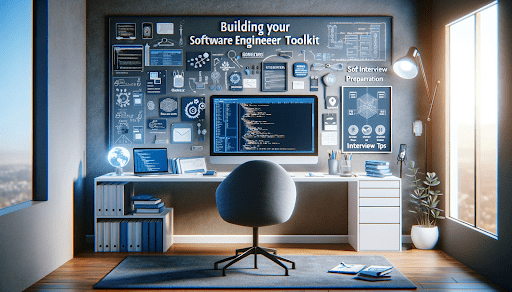An AI-driven skills assessment test is a tool used to assess a candidate’s ability to perform the job duties listed in the job description in an unbiased and validated manner. These tests typically consist of a variety of questions in different formats to evaluate how well candidates perform on-the-job tasks.

In today’s rapidly digitizing world, businesses are undergoing a significant transformation. As companies navigate this change, they recognize the importance of hiring and retaining talent with the right competencies. The “Skills Assessment Test” has evolved with the integration of AI technology, making assessments more dynamic, precise, and attuned to modern industry demands. With the digital era progressing, the Skills Assessment Test becomes a crucial tool for businesses to remain competitive and future-ready.
Below, we present three key research findings that illustrate the transformative impact of AI-based technical test assessment tools:
Dynamic Adaptability and Efficiency:
Historically, Skills Assessment Tests provided a fixed set of questions, irrespective of a candidate’s background or knowledge. The advent of AI integration has transformed this static approach. Now, these tests can actively modify questions in response to the answers given, making the assessment more relevant and precise for every individual.
Objective and Unbiased Assessments:
One of the perennial challenges in recruitment has been unconscious bias, which often influences hiring decisions. AI-powered Skills Assessment Tests are designed to mitigate this. By processing vast datasets without holding any pre-existing biases, these tools ensure candidates are evaluated purely on their skills and responses.
Profound Analytical Insights:
Beyond mere evaluation, AI-enhanced Skills Assessment Tests offer predictive insights. They’re equipped to project not just the immediate competencies of a candidate, but also potential future contributions, alignment with company culture, and likelihood of long-term commitment.
Benefits of AI-Based Technical Test Assessment Tools:

1. Unprecedented Scalability:
At the heart of AI’s transformative impact on skills assessment tests is its ability to scale. Think of it as the capability to simultaneously administer tests to a multitude of candidates, regardless of their number. Whether it’s a bustling multinational corporation with roles attracting thousands or a niche industry leader with specialized roles, AI-powered assessments ensure that all candidates can be evaluated concurrently, ensuring timeliness in the recruitment process.
2. Immersive Real-world Testing:
A standout feature of AI-infused skills assessment tests is the depth of realism they bring. Traditional tests might give a theoretical problem, but AI-driven tests elevate this experience. They can craft lifelike problem-solving scenarios akin to real job challenges. Such an approach not only evaluates a candidate’s theoretical knowledge but also tests their hands-on skills and adaptability in real-world situations. It’s no longer about answering a question; it’s about solving a tangible challenge.
3. Unwavering Consistency:
The objective of a skills assessment test is to judge a candidate’s ability in an unbiased manner. Human evaluations, despite best intentions, might sometimes fall prey to unconscious biases or simple oversights. AI eliminates this variable. Every test powered by AI maintains a consistent standard, assuring that every candidate, regardless of when or where they take the test, is judged using the same unwavering criteria. This uniformity upholds the integrity of the assessment, guaranteeing fairness and impartiality.
Navigating the Challenges of AI in Skills Assessment Tests
The integration of Artificial Intelligence (AI) in Skills Assessment Tests has transformed the hiring landscape, offering precision, scalability, and adaptability. However, along with its advantages, there are areas of caution that need vigilant attention.
1. The Algorithm Dilemma:
The adage “Garbage in, garbage out” aptly sums up the challenge here. AI, with all its prowess, is fundamentally dependent on the data it’s trained on. A Skills Assessment Test powered by AI can offer accurate insights, but only if the underlying data is reliable and unbiased. Missteps in calibration can lead the system astray, potentially magnifying biases rather than minimizing them. It underscores the necessity to continuously monitor, refine, and validate the data that feeds these algorithms.
2. Missing the Personal Touch:
Skills Assessment Tests aim to gauge a candidate’s proficiency, and while technical skills are quantifiable, soft skills are nuanced. Empathy, team collaboration, adaptability, and conflict resolution are just a few of the interpersonal attributes that machines might struggle to evaluate comprehensively. There’s a danger in sidelining the human element of assessment. The reliance on AI shouldn’t overshadow the need to understand a candidate’s personality, cultural fit, or their potential to grow and evolve within an organization.
3. Prioritizing Data Security:
The digital nature of Skills Assessment Tests, especially those harnessing AI, involves handling vast amounts of personal and professional data from candidates. This data is a treasure trove, but it also represents a vulnerability. Ensuring robust data security protocols is non-negotiable. Not only is it an ethical responsibility, but it also guards against potential breaches that could jeopardize candidate trust and the company’s reputation.
Future Prospects of the Skills Assessment Test:
The Skills Assessment Test landscape is poised to undergo dramatic transformations, fueled by technological advancements and the integration of artificial intelligence. Here’s what we can anticipate:
1. Embracing Immersive Technologies: The interplay between AI, Augmented Reality (AR), and Virtual Reality (VR) holds great promise. As the Skills Assessment Test evolves, there’s potential for AI-driven tests to merge with AR and VR capabilities. This fusion will offer candidates an immersive environment, particularly vital for positions demanding spatial understanding or advanced design capabilities. Such a setting not only elevates the testing experience but also simulates real-world challenges more effectively, ensuring candidates are equipped to translate their skills practically.
2. Self-Evolving Algorithms: One of the defining characteristics of AI is its ability to learn from data. As AI gets integrated more deeply into Skills Assessment Tests, the algorithms will perpetually enhance themselves. Every test taken is a new data point, enabling the AI to refine its precision, ensuring that the assessments remain updated, relevant, and accurate. This ongoing learning process ensures that Skills Assessment Tests remain at the forefront of evaluating candidate prowess.
3. Mainstream Adoption: The preliminary successes of AI-embedded Skills Assessment Tests haven’t gone unnoticed. As their efficacy becomes more evident, HR professionals and hiring managers across sectors are likely to gravitate towards these modern tools. The blend of consistency, fairness, and depth that AI brings to Skills Assessment Tests will drive their widespread acceptance, making them the benchmark in talent evaluation across diverse industries.
Read more about:
Evaluating Developers’ Coding Skills: A Comprehensive Guide
Skill Assessment Tests: The Future of Tech Recruitment
Navigating the Landscape of Skills Assessment: A Comprehensive Guide
Conclusion:
The integration of AI into skills assessment tests has undoubtedly paved the way for more efficient, fair, and insightful hiring processes. As with all technologies, striking the right balance between human judgment and machine intelligence will be crucial. The future of skills assessment is exciting, with AI at its helm, steering it towards new horizons.



